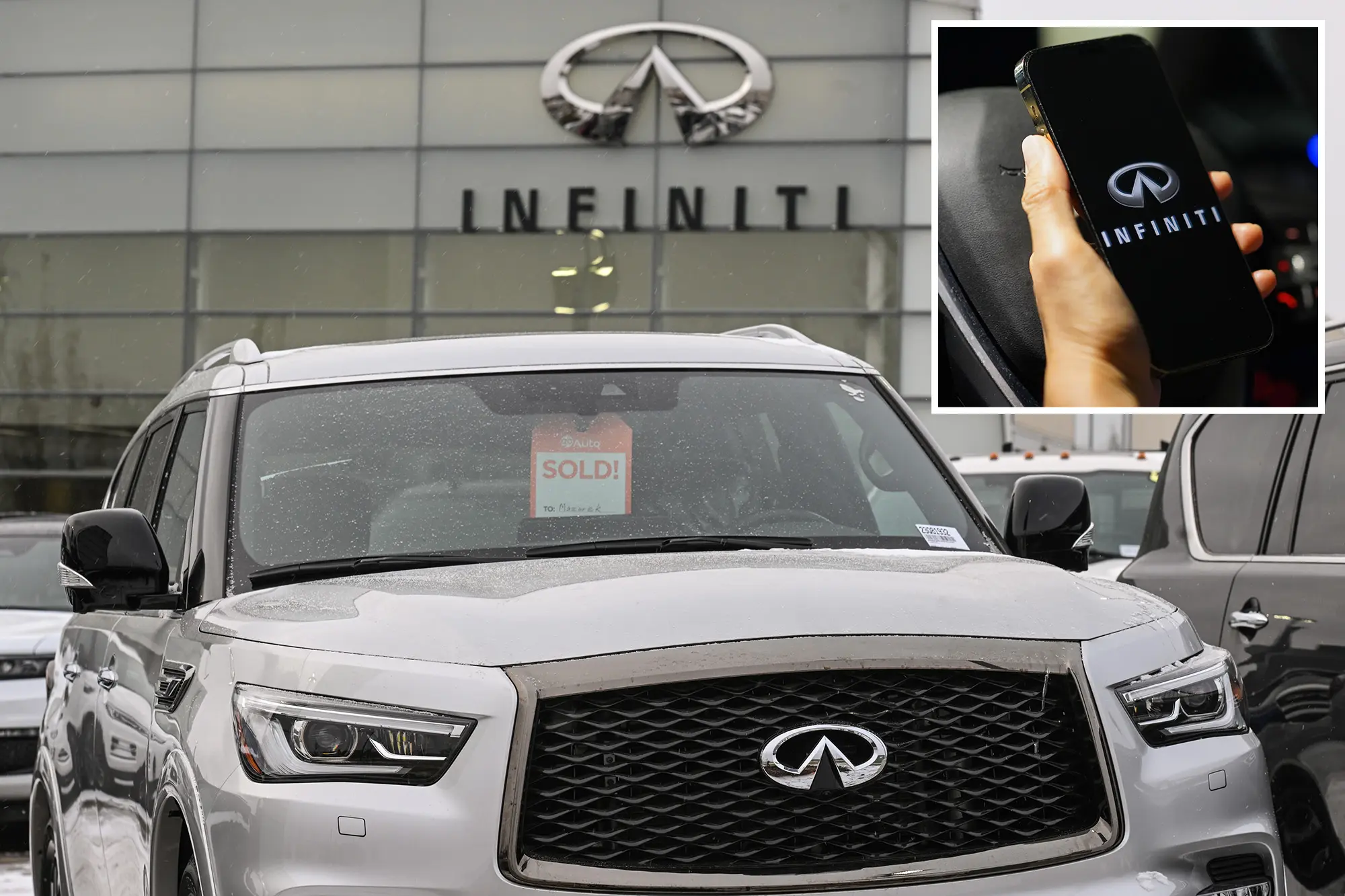Nissan to Close Standalone Infiniti Dealerships in the U.S.
Nissan has announced plans to shutter several standalone Infiniti showrooms in the U.S., opting to integrate the luxury brand into existing Nissan dealerships. The decision comes in response to a significant sales decline, with Infiniti sales dropping by more than 50% over the past five years. This move highlights the broader financial challenges facing Nissan and its efforts to restructure its luxury division.
Declining Sales Spur Strategic Shift
The sharp decline in Infiniti’s sales over recent years has prompted Nissan to reevaluate its approach to the luxury market. Once a key player in the premium automotive sector, Infiniti has struggled to maintain its market share amid rising competition and changing consumer preferences.
Integration into Nissan Dealerships
By integrating Infiniti into Nissan’s existing dealership network, the company aims to reduce operational costs and streamline its sales strategy. This approach allows Infiniti to leverage the established infrastructure and customer base of Nissan dealerships while reducing the overhead associated with standalone locations.
Addressing Financial Pressures
Nissan’s decision reflects the broader financial pressures facing the company. Declining global sales and the high costs of maintaining separate dealership networks have strained the company’s resources, necessitating bold measures to improve profitability.
Competitive Landscape Challenges
Infiniti’s challenges are exacerbated by the competitive landscape in the luxury automotive market. Brands like Tesla, BMW, and Mercedes-Benz have dominated the sector with innovative designs and advanced technologies, leaving Infiniti struggling to differentiate itself.
Shifting Consumer Preferences
The move also highlights shifting consumer preferences in the automotive industry. Customers are increasingly favoring electric vehicles (EVs) and advanced driver-assistance systems, areas where Infiniti has lagged behind competitors in innovation and adoption.
Cost-Saving Measures
Closing standalone Infiniti dealerships is part of a broader cost-saving initiative by Nissan. By consolidating operations, the company aims to allocate resources more effectively, focusing on product development and market strategies to regain its competitive edge.
Focus on Core Markets
The integration strategy allows Infiniti to focus on core markets where it can compete more effectively. Nissan plans to prioritize regions with strong demand for luxury vehicles while scaling back operations in areas with limited growth potential.
Enhancing Customer Experience
Nissan has assured customers that the integration will not compromise the Infiniti ownership experience. By offering dedicated Infiniti sections within Nissan dealerships, the company aims to maintain the premium service levels expected by luxury car buyers.
Challenges in the U.S. Market
The decision underscores the unique challenges of the U.S. automotive market, where luxury brands must navigate intense competition, high customer expectations, and economic fluctuations. Infiniti’s struggles in the U.S. reflect broader industry trends.
Decline in Sedan Popularity
Infiniti’s reliance on sedan models has contributed to its decline. With SUVs and crossovers dominating the market, Infiniti’s product lineup has not resonated as strongly with U.S. consumers, necessitating a shift in focus.
Investment in EVs
As part of its restructuring efforts, Nissan plans to invest more heavily in electric vehicles for the Infiniti brand. By aligning with global trends toward sustainability, Infiniti hopes to reestablish itself as a forward-thinking luxury automaker.
Streamlining Product Offerings
The company also plans to streamline Infiniti’s product offerings, focusing on models with high demand and profitability. This approach aims to reduce complexity and improve operational efficiency within the brand.
Leveraging Nissan’s Technology
Integrating Infiniti into Nissan dealerships allows the luxury brand to benefit from Nissan’s technological advancements. Shared resources in research and development can accelerate Infiniti’s progress in areas like EVs and autonomous driving.
Potential Impact on Employees
The closures are likely to impact employees working in standalone Infiniti dealerships. While Nissan has not disclosed specific numbers, the move may result in workforce reductions, raising concerns about job security within the company.
Reaction from Dealers
Infiniti dealers have expressed mixed reactions to the announcement. While some see the integration as an opportunity to reduce costs and improve profitability, others worry about the potential dilution of the brand’s identity within Nissan dealerships.
Maintaining Brand Identity
A key challenge for Nissan will be maintaining Infiniti’s brand identity amid the integration. The company must strike a balance between leveraging Nissan’s infrastructure and preserving Infiniti’s image as a distinct luxury brand.
Consumer Perception
Consumer perception of the integration will play a critical role in Infiniti’s success. Nissan must ensure that customers continue to view Infiniti as a premium brand, capable of delivering the luxury experience they expect.
Adapting to Industry Trends
The integration reflects Nissan’s efforts to adapt to broader industry trends, including the shift toward shared platforms and multi-brand dealerships. These trends are reshaping the automotive landscape, pushing companies to innovate and streamline operations.
Lessons from Competitors
Nissan’s strategy mirrors similar moves by competitors who have consolidated dealership networks to reduce costs. Learning from these experiences, Nissan aims to position Infiniti for long-term success in a rapidly changing market.
Preparing for Future Growth
Despite the challenges, Nissan remains optimistic about Infiniti’s future. The integration strategy is part of a broader plan to revitalize the brand, invest in new technologies, and position Infiniti as a competitive player in the luxury market.
Conclusion
The decision to close standalone Infiniti dealerships marks a significant shift in Nissan’s approach to its luxury brand. By integrating Infiniti into Nissan dealerships, the company aims to address financial challenges, adapt to industry trends, and strengthen its position in the competitive luxury automotive market. The success of this strategy will depend on Nissan’s ability to balance cost savings with brand integrity, ensuring that Infiniti remains a compelling choice for luxury car buyers.




































